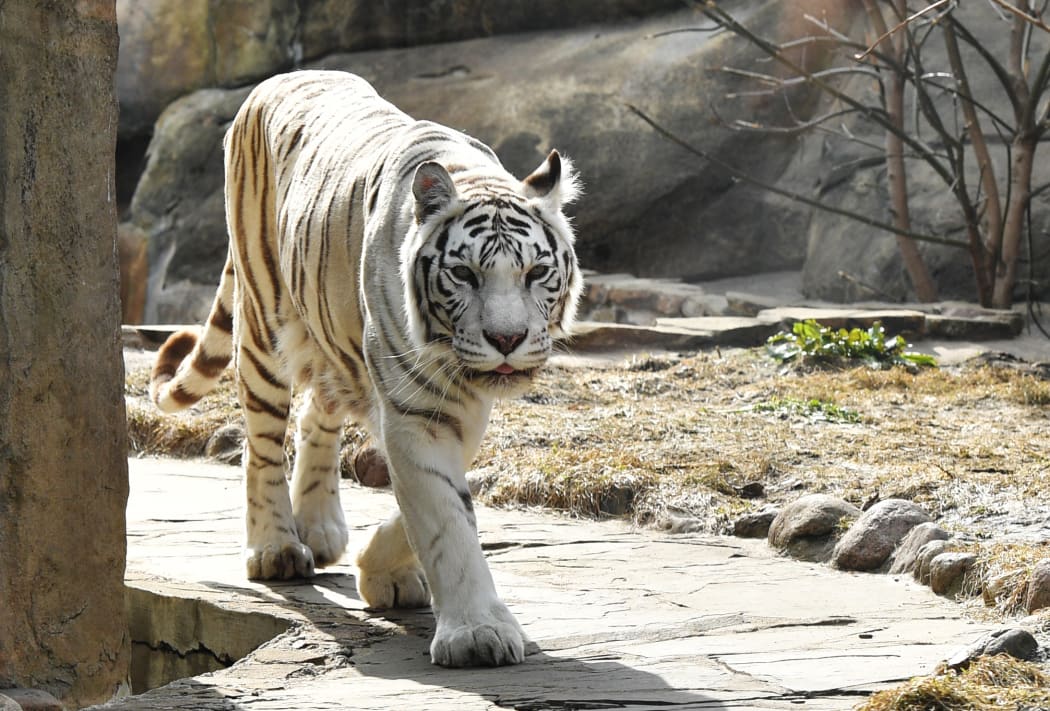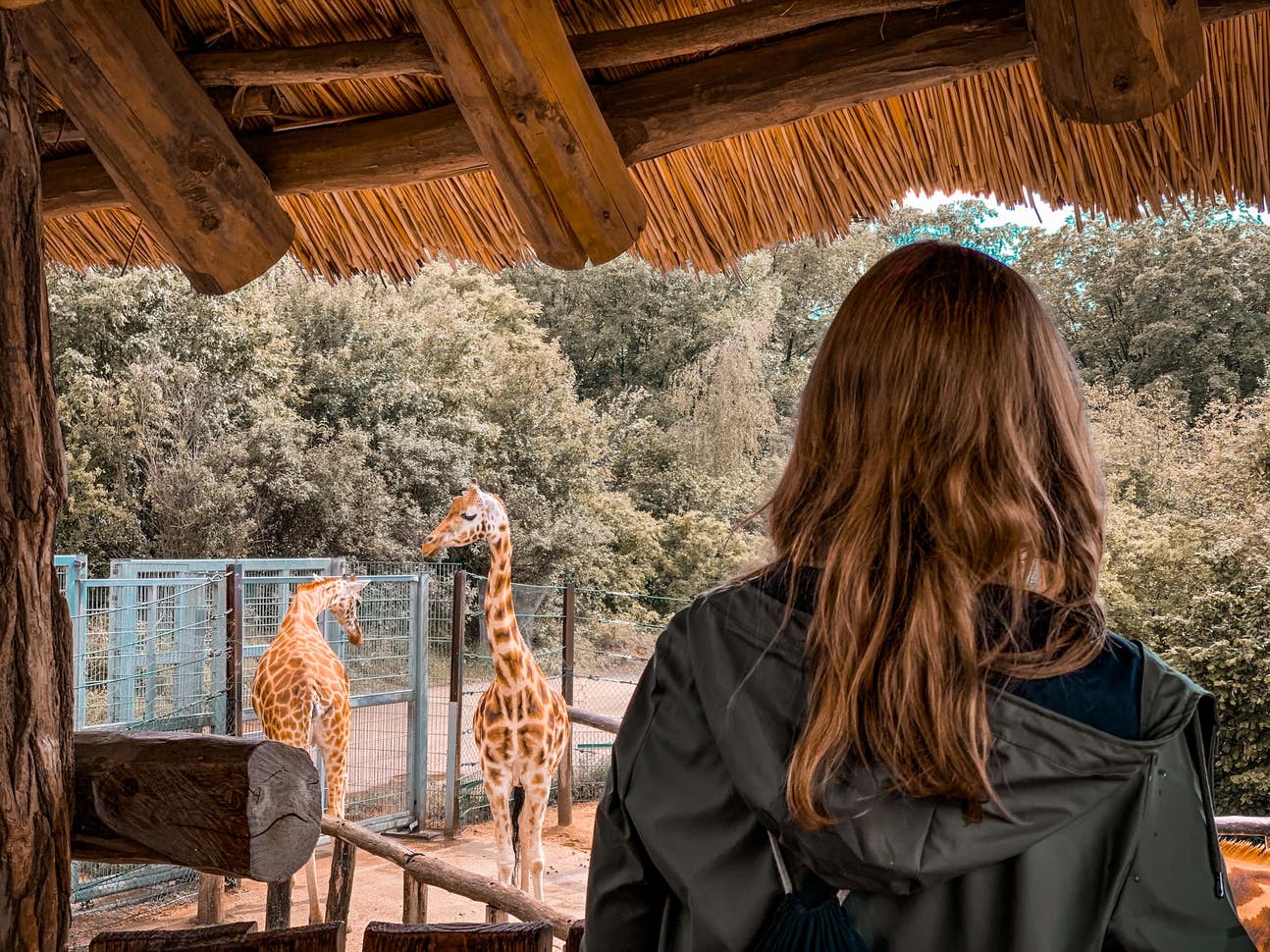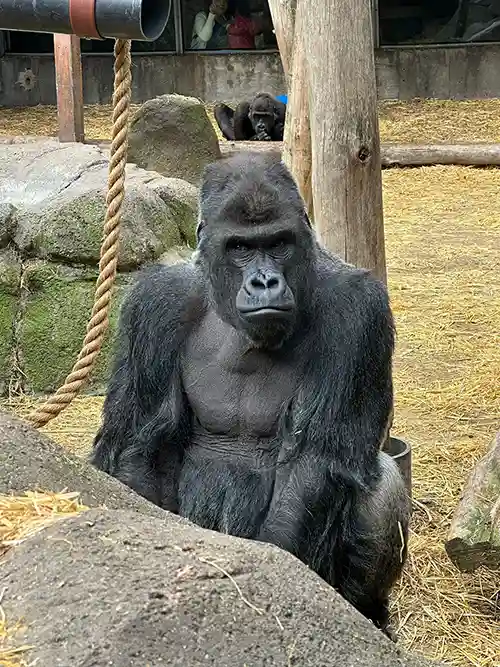How To Become A Zoo Keeper?
페이지 정보
작성자 Nick 작성일 25-06-16 08:15 조회 186 댓글 0본문
"The greatness of a nation and its moral development can be evaluated by the way its animals are dealt with." - Mahatma Gandhi
Do you like animals and dream of working in a zoo? Zoo keepers are key in protecting wildlife and caring for animals. At locations like the Zoological Society of London (ZSL), over 20,000 animals get the care they require from specialists.
To become a zoo keeper, you need effort, education, and a love for animals. This task is amazing, letting you deal with lots of species and aid with essential conservation work. If you're into wildlife or animal welfare, zookeeping might be best for you.
Beginning your zoo keeper career implies discovering what's required. This guide will cover education, experience, and more. It's all you need to understand to begin a satisfying zookeeping profession.
Comprehending the Role of a Zookeeper
Exploring what a zookeeper does exposes a role loaded with obstacles and benefits. They concentrate on animal welfare and conservation. Zookeepers strive to keep animals healthy and delighted in their care.
Daily Responsibilities and Tasks
A zookeeper's day is filled with essential tasks:
- Preparing meals that fulfill each animal's dietary needs
- Cleaning enclosures to keep them clean and safe
- Supervising animal health and behaviour
- Providing medications and treatments as needed
- Producing activities to keep animals psychologically sharp
Working Environment and Conditions
Zookeepers work outside in all type of weather. They handle both indoor and outdoor spaces. The job needs being physically fit and able to manage the demands of looking after animals.
"Being a zookeeper is more than a job - it's a passionate commitment to animal care and conservation."
Types of Animals and Specialisations
Zookeepers can specialise in many animal groups:
- Primates
- Big cats
- Marine mammals
- Reptiles
- Birds
Your role may include dealing with 2-5 various animal types. This needs a lot of knowledge and the ability to adapt.
Important Skills and Personal Qualities for Zoo Keeping
To be a top zookeeper, you need more than simply a love for animals. Your task will be tough and require you to handle animals and people well. You'll also need to comprehend animal behaviour.

What zoos try to find in individuals consists of:
- Exceptional perseverance and psychological durability
- Strong physical fitness and stamina
- Eager observation abilities
- Capability to remain calm under pressure
- High level of empathy towards animals
Getting hands-on experience is crucial to mastering this function. You'll require to reveal:
- Advanced understanding of animal care techniques
- Efficiency in animal handling and security protocols
- Efficient communication with both animals and human visitors
"An excellent zookeeper connects science, compassion, and preservation in every interaction with animals."
You ought to understand about animal nutrition, behaviour, zookeeper and fundamental veterinarian care. The majority of zookeepers learn through training, offering, and ongoing knowing.
Zookeeper work is not simply a job. It's a big commitment to teaching about wildlife and helping preservation. Your passion and hard work will make you stick out in this fulfilling career.
How to Become a Zoo Keeper
Beginning a career as a zookeeper requires cautious planning and education. You should first understand the instructional requirements and training paths. These will turn your love for animals into a task.
Educational Requirements
To be a great zookeeper, you require a strong academic base. Many jobs try to find specific qualifications:
- At least 5 GCSEs at grade 4 or above, including English, maths, and science
- A levels or higher education credentials
- A college degree in biology or animal science
- Level 3 Diploma in Animal Management
Essential Certifications
Getting unique accreditations can truly help you in your zookeeper career. Crucial ones consist of:
- Diploma in Management of Zoo and Aquarium Animals (DMZAA)
- Zookeeping Level 3 Diploma (RQF)
- Animal handling certificates
- First aid certifications
Training Programs and Apprenticeships
Getting hands-on experience is key in zookeeper training. Lots of locations offer great possibilities:
- Unpaid apprenticeships at wildlife parks
- Internship programmes at popular zoos
- Practical training at locations like Colchester Zoo and Dartmoor Zoo
- Offering to get real-world abilities
Pro tip: Create a comprehensive portfolio to show your animal care abilities. It will help you in task applications.
Building Relevant Experience in Animal Care
Gaining hands-on experience is essential for those wanting to be zookeepers. The job is extremely competitive. So, it's important to start building a strong base in animal care.
Your journey starts with discovering ways to work directly with animals. This is a strategic step.
"Experience is the best instructor in animal care" - Wildlife Conservation Experts
Here work methods to get experience working with animals:
- Volunteer at regional animal shelters to establish standard animal dealing with abilities
- Look for zookeeper internships at wildlife rehab centres
- Explore part-time positions at veterinary centers
- Contact your local zoo for possible volunteer chances
Volunteering is a fantastic method to discover animal behaviour and care. Many zoos and animal shelters are searching for individuals who wish to learn. These locations provide great possibilities to get hands-on experience and show your commitment to animal welfare.
Here are some tips to take advantage of your experience:
- Keep a record of your skills and interactions
- Get in touch with specialists in animal care
- Ask for recommendations and letters of recommendation
- Stay persistent and show your true enthusiasm
Keep in mind, practical experience makes you stand apart in the zookeeping world. Every time you deal with animals, you discover more. This increases your chances of getting a job in animal care.
Profession Pathways and Professional Development
Beginning a profession as a zookeeper is exciting. It uses many opportunities to grow and specialise. Your journey begins with comprehending the various paths in this field.
Entry-Level Positions
Entry-level tasks in zookeeping are an excellent start. They give you hands-on experience. Zoos try to find candidates with:
- Level 2 Diploma in Animal Care (minimum certification)
- GCSEs in English and a clinical subject
- Volunteer experience at animal shelters or farms
Career Progression Opportunities
As you gain experience, your profession can grow. You can go up to:
- Junior Keeper
- Senior Keeper
- Team Leader
- Specialist Roles
"Continuous learning and useful experience are crucial to advancing in your zookeeping profession."
Specialised Roles
You can likewise pick unique areas like:
- Conservation breeding programmes
- Animal training
- Wildlife research study
- Educational outreach
About 25% of zookeepers get advanced degrees in zoology or animal conservation. Getting Level 4 certifications can improve your possibilities for senior functions and research study.

Working Hours and Physical Demands
Ending up being a zookeeper implies you'll work more than simply regular hours. You'll face hard physical challenges and require to be flexible, consisting of weekends and holidays. Zoos are open every day, so you'll frequently work when others relax.
"Zoo keeping is not a common 9-to-5 task-- it's a way of life of dedicated animal care and dedication."
This task is physically demanding. You'll work outside in any weather condition, raising heavy products over 50 pounds. Your tasks may consist of:
- Early early morning feeding schedules
- Cleaning animal enclosures
- Preparing specialised diets
- Carrying out medical examination
- Keeping complicated environments
Shifts can begin as early as 5 AM and go late into the night. You'll be on your feet the majority of the time, moving in between animal zones. Weekends and holidays are part of the task, requiring lots of stamina and dedication.
Regardless of the obstacles, this job has terrific rewards. You'll grow strong, both physically and mentally. You'll also make incredible connections with amazing animals.
Health And Wellness Considerations
Being a zookeeper features its own set of difficulties. It's essential to understand how to keep both animals and personnel safe. This suggests following rigorous health and wellness rules.

Zookeepers face a special environment where safety is crucial. Studies show that health and safety are now as essential as the zoo's main work.
Danger Management Strategies
There are several methods to manage dangers in zoos:
- Daily checks of animal enclosures for threats
- Counting animals at the start and end of shifts
- Seeing how visitors act near animals
- Being ready for emergency situations
Animal Handling Safety Protocols
Understanding which animals are most dangerous is important. Big animals like rhinos can be very dangerous. There have actually been cases where zookeepers got seriously injured.
Safety isn't practically using gear - it's about knowing animal behaviour and staying alert.
Individual Protective Equipment
Zookeepers need to use the ideal equipment, including:

- Special gloves for dealing with animals
- Strong shoes for grip and zookeeper safety
- Clothing that safeguards versus germs
Getting immunized versus illness like hepatitis B and rabies is likewise key. It helps keep zookeepers healthy in their tough job.
Income Expectations and Job Market
Thinking of a career in zoo keeping? It's important to understand about salaries and the job market. The field is growing, with more opportunities in the UK.
Let's look at what zoo keepers can earn at different stages:
- Entry-level zookeepers start at about ₤ 14,000 a year
- Certified ones make in between ₤ 16,000 and ₤ 22,000
- Senior zookeepers can earn up to ₤ 30,000 or zookeeper more
The task outlook for zookeeper zoo keepers is great. The sector is anticipated to grow by 5% in the UK by 2029. This suggests around 3,910 new tasks will be offered.
"The Association of Zoos and Aquariums supports expert growth for zoo keepers," a report states.
Wages differ based on numerous things:

- Experience level
- Specialisation
- Where you work
- The zoo's size and type
While the pay might not be high, the happiness of working with animals is invaluable. The average wage is around ₤ 17,000. However, total profits can be in between ₤ 13,000 and ₤ 27,000 a year.
Conclusion
Beginning a career in animal care is an interesting journey. It requires commitment, passion, and a love for knowing. With over 350 zoos and wildlife places in the UK, there are numerous task chances. You'll get to work with amazing animals and assist protect wildlife.
.jpg)
To be a zoo keeper, you require more than simply love for animals. You need to have a good understanding of biology, be able to interact well, and constantly wish to find out more. You'll gain hands-on experience, learn more about animal welfare, and develop a deep respect for zookeeper nature. About 3,000 individuals in the UK have found fulfilling professions in this field.
Your success in comes from blending science with a love for animals. Whether you're interested in mammals, birds, or marine life, this job lets you assist with preservation. Every day will bring new difficulties and learning chances that will enhance your skills and knowledge.
If you enjoy animals and wish to assist protect wildlife, zoo keeping might be for you. Take on the challenge, stay curious, and turn your enthusiasm for animals into a gratifying career.
댓글목록 0
등록된 댓글이 없습니다.